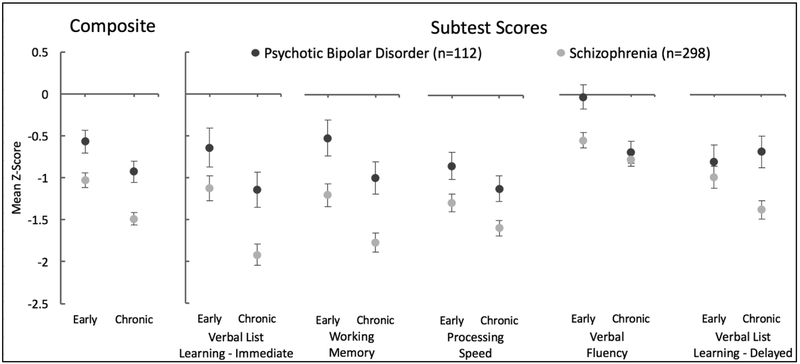Figure 2.
Effects of diagnosis and illness stage on neuropsychological performance. The two-way ANOVA of SCIP Composite Z-score revealed main effects of diagnosis (p<.001) and illness stage (p<.001). The interaction between diagnosis and illness stage was not significant (p=.648). Main effects of diagnosis and illness stage reached significance for verbal list learning-immediate, working memory, processing speed, and verbal fluency. A main effect of diagnosis, but not illness stage was observed for verbal list learning-delayed recall. The diagnosis by illness stage interaction was not significant for any subtest, with the exception of verbal fluency which reached trend significance level (p=.066) due to the fact that verbal fluency was more impaired in schizophrenia than bipolar disorder in early stage (p=.003), but not chronic patients (p=.596). Error bars indicate standard error of the mean. Statistics are presented in detail in the Supplemental Material.

